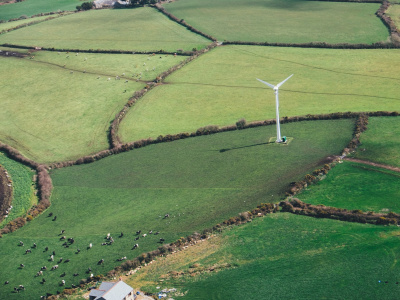
Green transition in Africa: Implications for Sweden and the EU
Jeske van Seters and Nadia Ashraf explore the drivers and bottlenecks of a green transition in Africa and look at possible implications for EU member states, specifically Sweden, and the EU’s engagement with the African continent in the context of the EU Green Deal.
Green transition is increasingly gaining traction in Africa. All 54 African countries signed the Paris Agreement and the African Union’s development goals in its Agenda 2063 envisage green economies in Africa.
Summary
This paper explores green transition dynamics in Africa by analysing drivers and bottlenecks and what that could mean for Sweden and the EU’s engagement with the African continent in the context of the EU Green Deal.
Green transition is increasingly gaining traction in Africa. All 54 African countries signed the Paris Agreement and the African Union’s development goals in its Agenda 2063 envisage green economies in Africa.
On the other side of the Mediterranean, the European Union has its Green Deal to achieve net zero greenhouse gas emission. But the success of this initiative depends partly on its ability to inspire and support green transition and effective climate action around the world. So how can the EU and its member states, specifically Sweden, better ensure that Europe’s green transition speaks to the priorities of African countries, and does not come at the cost of development and stability of its partners?
Key issues discussed in the paper are:
- African countries take different pathways to achieve green transition, and need to be supported to transition at a pace and scale that allows them to build relevant capacities and mitigate losses.
- The lack of financing and investments, exacerbated by weak policy environments and lack of (green) capacities, is a critical challenge in Africa and merits attention in EU-Africa relations.
- There is a considerable risk that the urgency to boost employment and economic growth in Africa will overshadow climate change and environmental issues. Through appropriate diplomacy, Sweden and the EU can support climate action that is linked with job creation.





